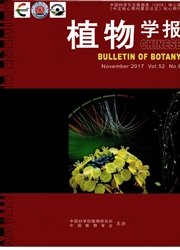

 中文摘要:
中文摘要:
非洲菊(Gerbera hybrida)已成为研究复杂花序进化与发育的模式植物。以非洲菊无菌组培苗叶片为材料,分析不同浓度纤维素酶及离析酶配比对非洲菊原生质体提取效率的影响,建立了稳定、高效的非洲菊原生质体提取与瞬时转化体系。结果表明,以2.0%纤维素酶+0.3%离析酶组合,在0.4 mol·L^–1甘露醇溶液中,酶解4小时,酶解温度为25°C,得到产量高达2.2×10^7个·g^–1 FW及活力较高的原生质体,可直接用于植物蛋白亚细胞定位和蛋白间相互作用实验,转化效率达80%。该研究建立了非洲菊原生质体制备和瞬时转化体系,为非洲菊基因功能研究奠定重要的技术基础。
 英文摘要:
英文摘要:
Gerbera hybrida has been used as model plant to study the evolution and development of composite inflorescences. To establish an efficient protoplast isolation and transient transformation system in G. hybrida, leaves of cultivar ‘Shenzhen No. 5' in vitro seedlings were used as materials and the effects of different concentrations of cellulase R10 and macerozyme were tested to screen a suitable preparation method. The best enzyme solution concentration consisted of cellulase R10 2.0%(w/v), macerozyme 0.3%(w/v), and 0.4 mol·L^–1 mannitol and more than 2.2×10^7·g^–1 FW protoplasts with high activity were obtained after 4 h treatment under 25°C condition. Subcellular localization and protein-protein interaction assays were performed using these protoplasts and revealed 80% transformation rate. Collectively, this study established an efficient protoplast isolation and transient assay system that can provide an important platform to facilitate gene function studies in G. hybrida.
 同期刊论文项目
同期刊论文项目
 同项目期刊论文
同项目期刊论文
 期刊信息
期刊信息
